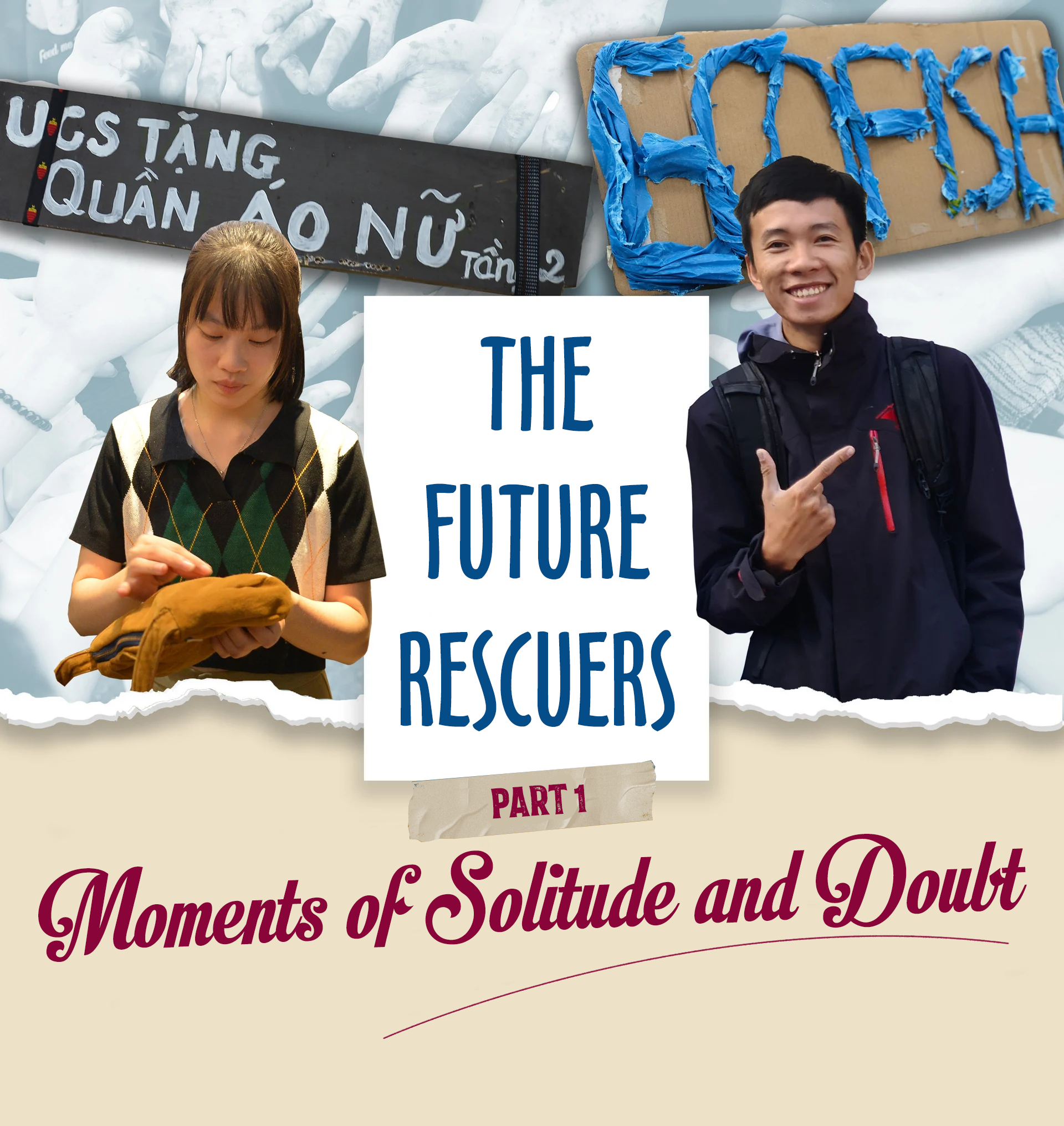
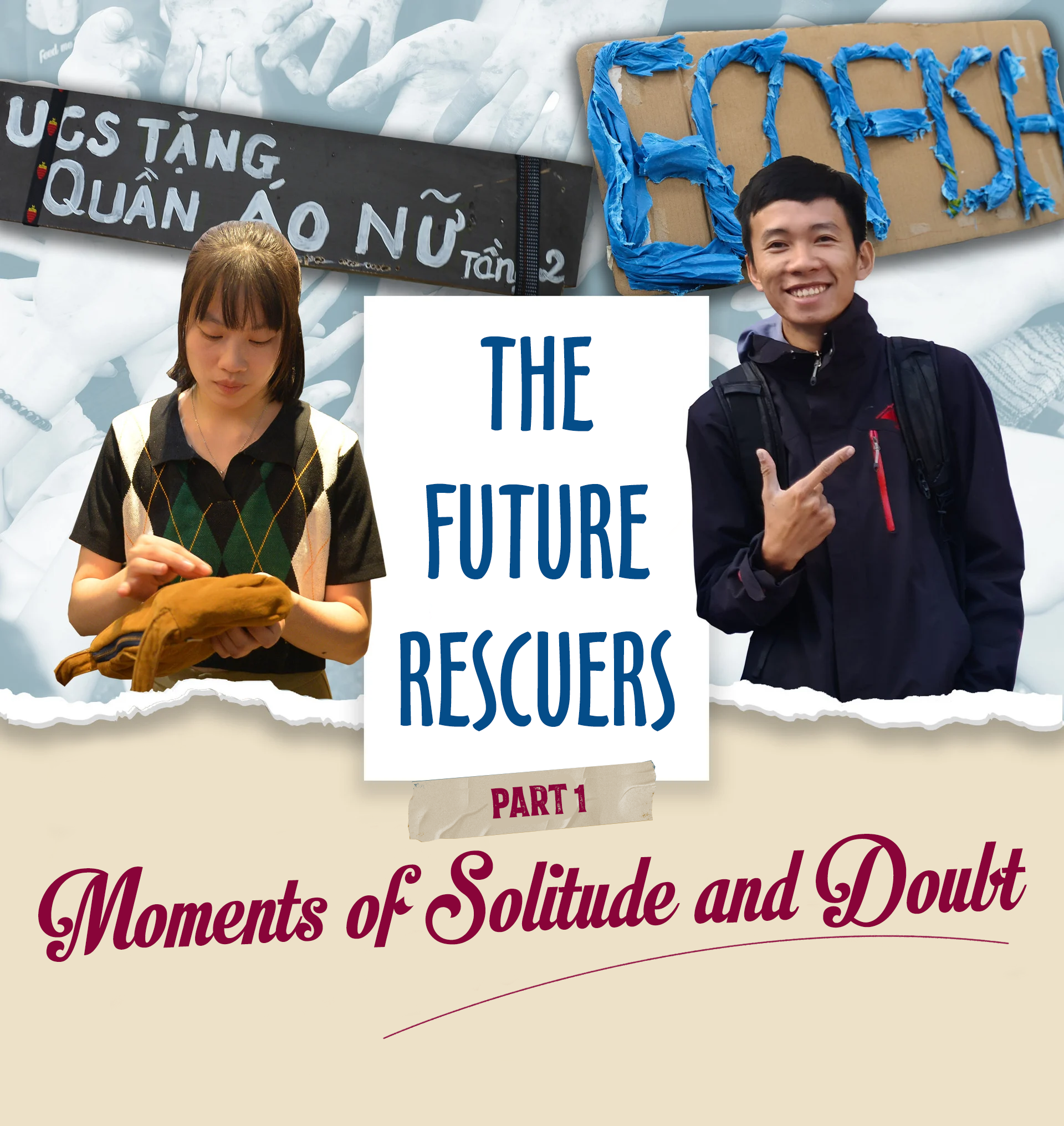
Imagine grappling with dozens of plastic bags at the market, wrestling with plastic straws, or feeling overwhelmed by the mountain of waste in your neighborhood. While you might be disheartened by the rivers clogged with debris or the trash piling up in your local area, there are individuals out there striving to turn these problems into solutions.
We call them the "Rescuers of the Future"—those who are courageously and optimistically working to save the world from the scourge of waste.
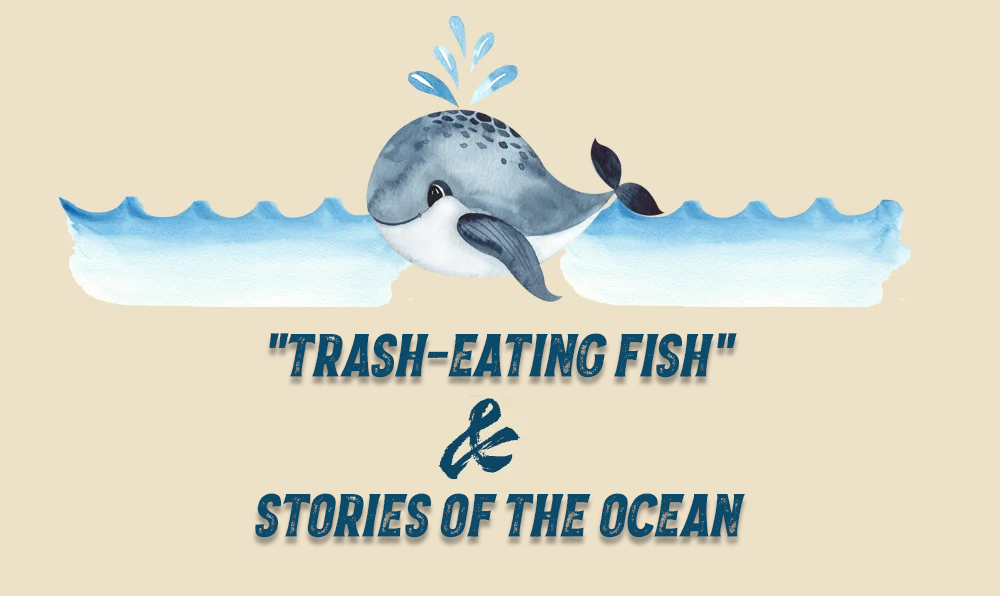
In 2018, a moving clip surfaced online: a mother whale, J35, also known as an orca, carrying her dead calf for seven days across the waters off Victoria, British Columbia. The image touched hearts worldwide. Despite her despair, the mother whale persisted, trying to keep her calf above water. This calf was the first to be born in three years among a population critically endangered by human activities.
Pham Thanh Tri, a 24-year-old from Quang Ngai, was inspired to act by such heartbreaking scenes from the ocean—a testament to the devastating impact of plastic waste. Determined to make a difference, Tri embarked on his mission with small but significant steps.
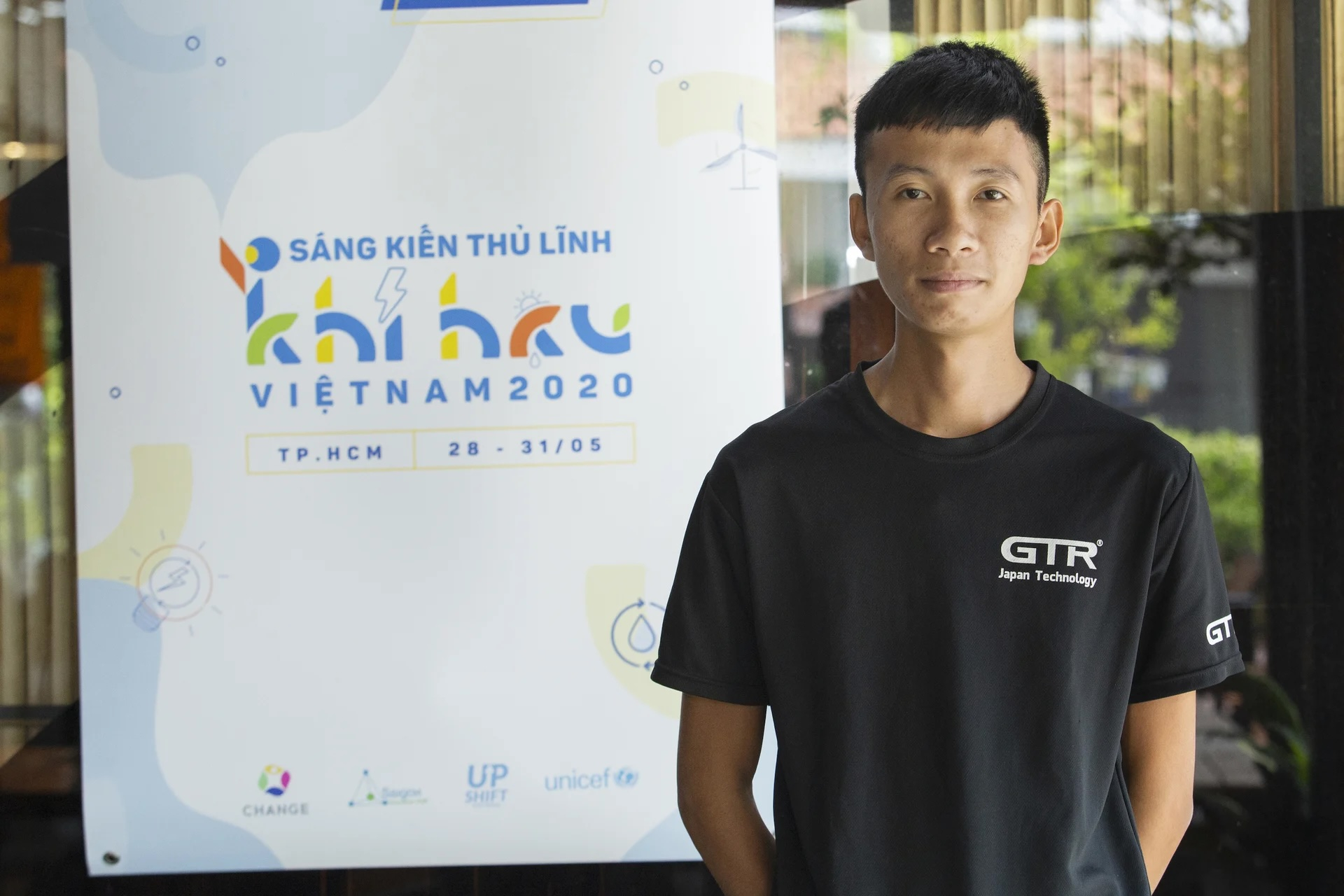
Pham Thanh Tri
Tri, who has faced considerable hardships, never intended to give up. His journey has been one of self-discovery and a quest to contribute positively to his community. During his reflections on the ocean's distress signals, Tri conceived the EcoFish project, which aims to create massive marine creature models filled with plastic waste.
"The project started with my awareness of the disasters marine life faces, such as entanglement in nets or ingestion of plastic bags. EcoFish symbolizes fish consuming plastic waste, which eventually ends up in the human food chain. We are, in essence, eating the plastic we discard," Tri explains.
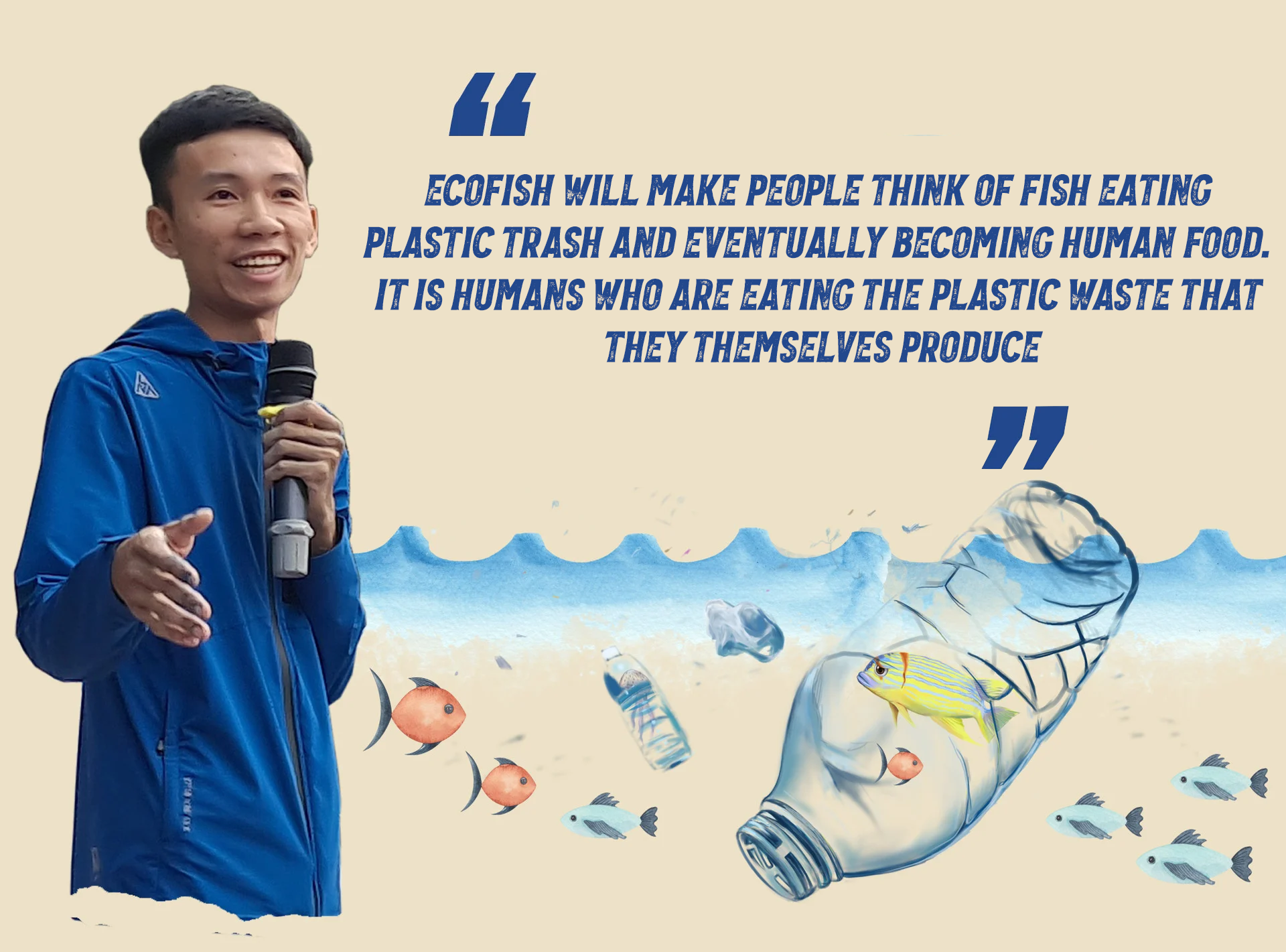
Over several months, Tri rallied a team of environmentally conscious youths to create their first innovative model—a three-meter-tall, six-meter-long bamboo fish named "Trash-Eating Goby." This model, which underscores the message "Pay More Attention to Plastic Waste," has toured seven provinces, reaching 11 schools and featuring in 16 different models.
The goby model, representing a fish laden with plastic waste, serves as a visual reminder for students about the growing problem in our oceans. Tri’s efforts to amplify the ocean's cry for help among young people provide him with the motivation to overcome initial challenges. "We mostly fund our activities through school support and various fundraising efforts," Tri shares.
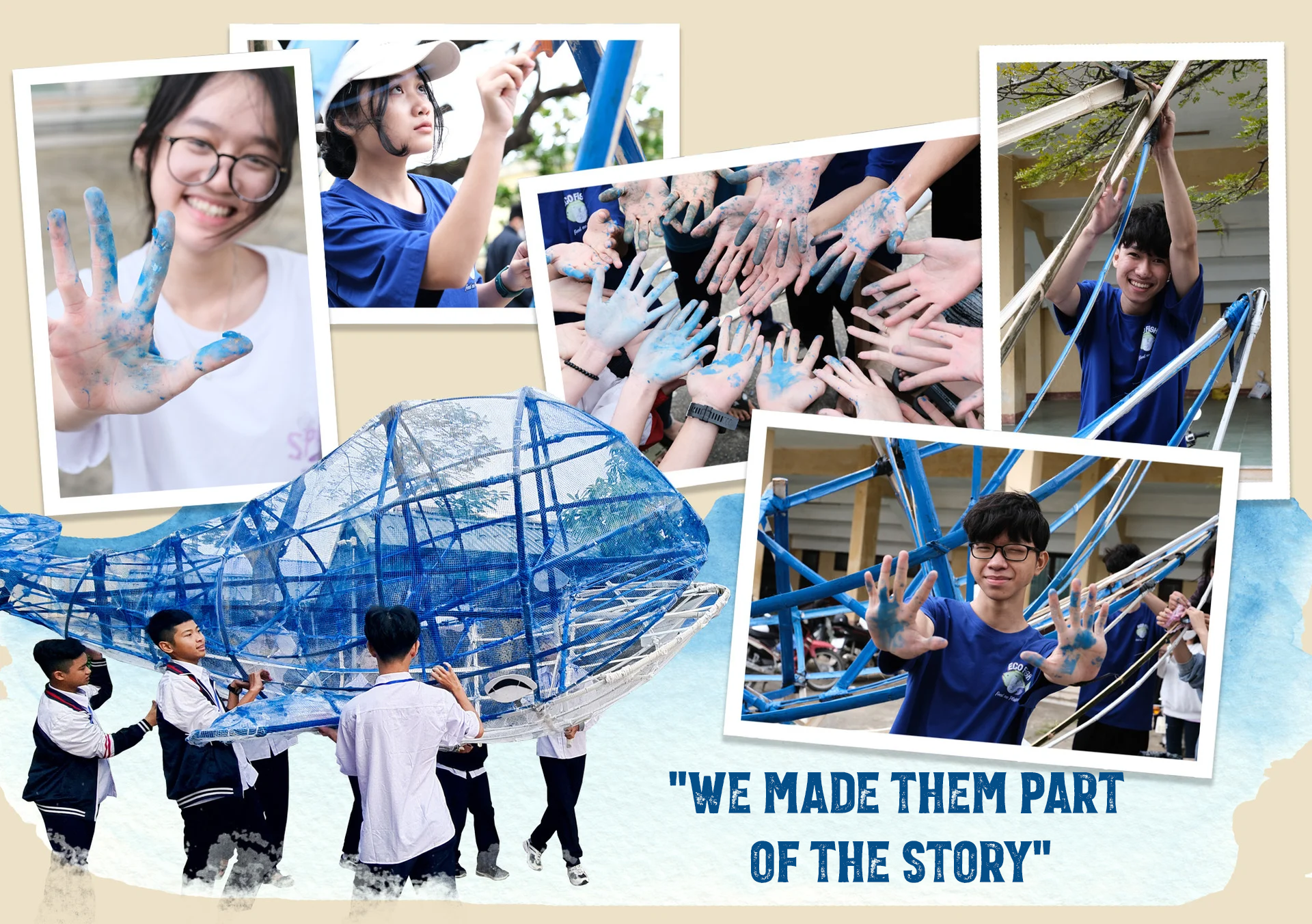
Within 20 days of selecting materials and executing their plans, the first goby model was installed at Tri's alma mater, Tu Nghia High School in Quang Ngai. Although the materials—primarily school-sourced waste—were not hard to find, constructing the model and sourcing bamboo presented difficulties. Tri recalls, "The first model was a gift to my old school. The positive feedback from students encouraged us to improve subsequent models. EcoFish aims to create an educational experience where students are both beneficiaries and collaborators in environmental change. We will educate students first, then advance to waste sorting models."
For Tri, youth should not be about social media trends but about meaningful engagement. He chose to traverse various provinces, sharing the urgency of environmental protection. Tri dedicates all his time, energy, and finances to EcoFish, standing firm despite setbacks. His greatest challenge remains rallying young people to act for the environment.
"Currently, Facebook trends dominate, and environmental messaging often receives limited attention. Traditional news bulletins on pollution don’t resonate unless people are directly affected," Tri observes.
As of now, EcoFish has introduced its waste-awareness models to students in Quang Ngai, Nam Dinh, Hanoi, Tra Vinh, Can Tho, Ho Chi Minh City, and Ba Ria-Vung Tau. When setting up recycled models in schools, EcoFish members interact extensively with students, explaining the risks and damage caused by uncontrolled plastic use. Over 5,000 students have engaged with EcoFish’s models, gaining a deeper understanding of environmental stewardship.
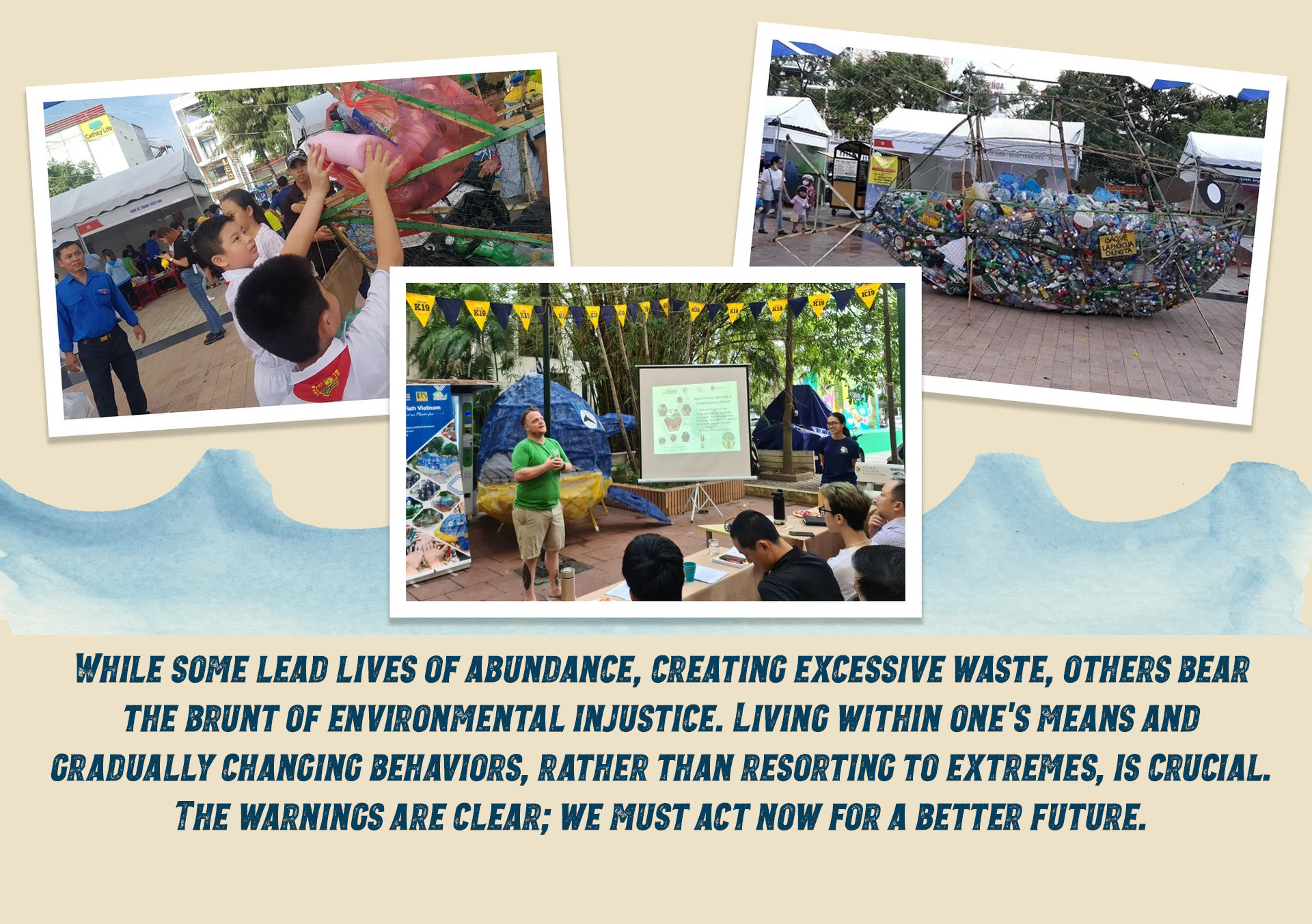
EcoFish, composed of ten young members from diverse regions, owes much to Pham Thanh Tri’s passion and responsibility, which have inspired youths from his hometown and students at various universities.
Trinh Gia My, a student of International Relations at the University of Social Sciences and Humanities in Ho Chi Minh City, has been with EcoFish since its challenging early days.
For My, contributing to change the habits of her peers brings great joy: "It's gratifying to see EcoFish embraced enthusiastically wherever we go. My greatest hope is to extend the project's reach as far as possible to achieve our educational goals. In other collaborations, it’s tough to achieve educational aims; schools often just want the model without focusing on environmental issues. We strive to convey our message effectively".
EcoFish’s environmentally friendly marine models transcend mere waste containers; they embody a green lifestyle and a sustainable future. They represent a bold spirit of change and action and articulate the younger generation's voice for the environment. Every positive community contribution advances EcoFish’s mission of environmental preservation.
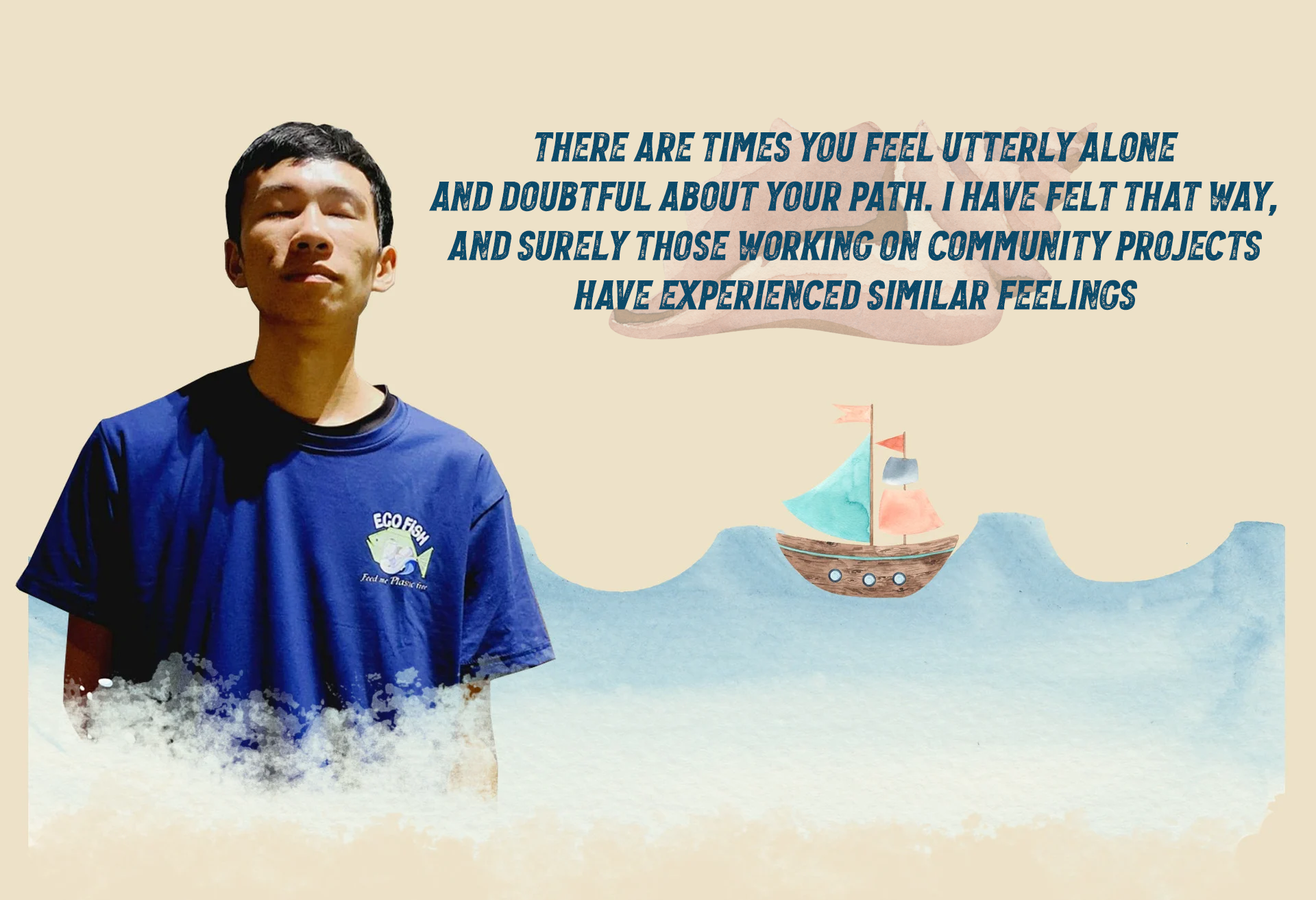
The road ahead will undoubtedly present many challenges. But if one's dream is grand enough to hear the distant ocean, why hesitate to step forward and spread the vision of a future with clean, thriving seas? Tri’s journey began with “nothing,” facing immense pressure to stand firm on his current path. EcoFish has indeed transformed the worldview of this young man in his early twenties.
Tri is now planning a campaign called "Experience Pollution," designed to offer a visceral understanding of the plight faced by marine creatures entangled in waste. This initiative, envisioned as an emotional tour for elementary and middle school students, aims to create a lasting impact.
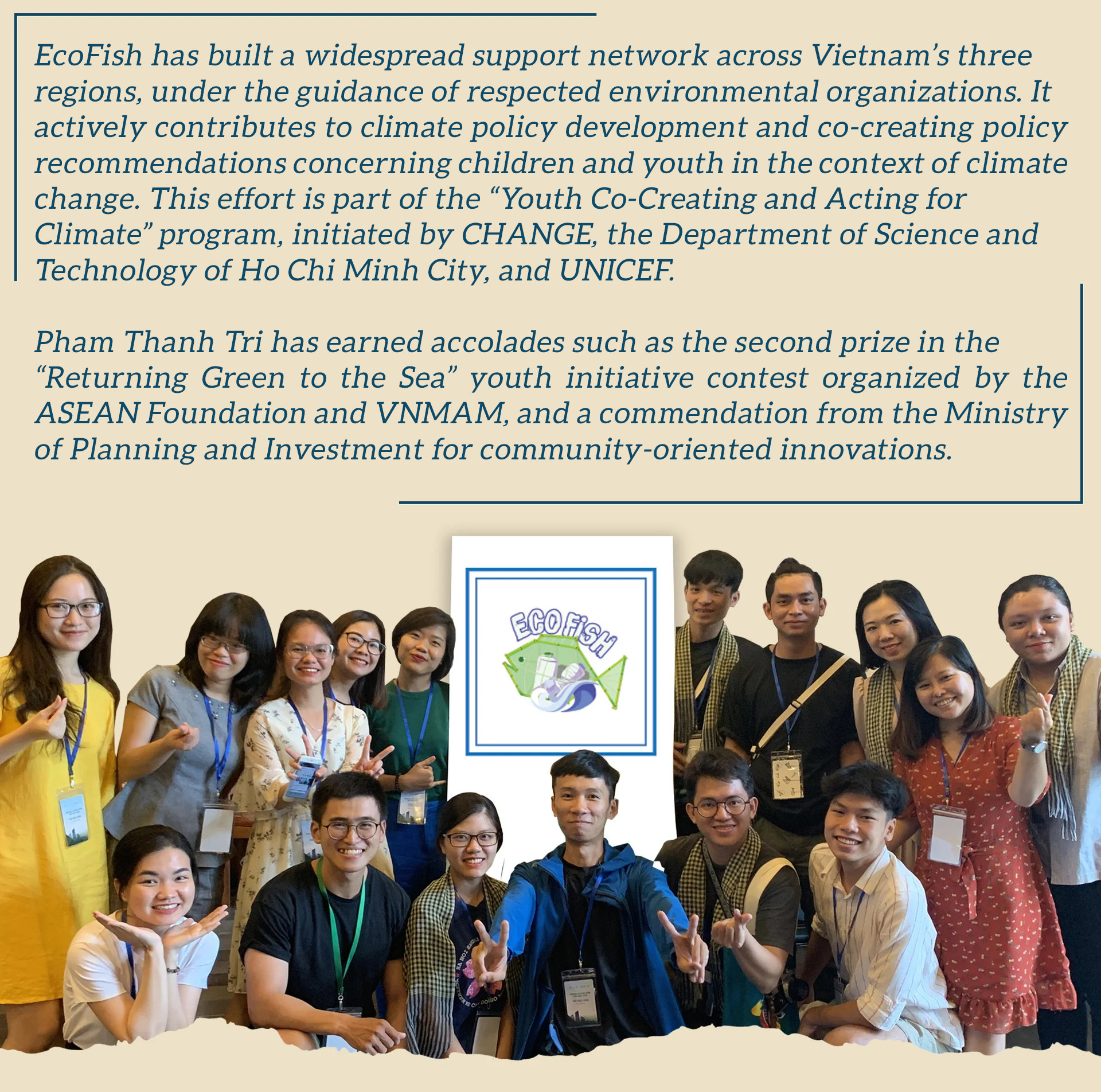
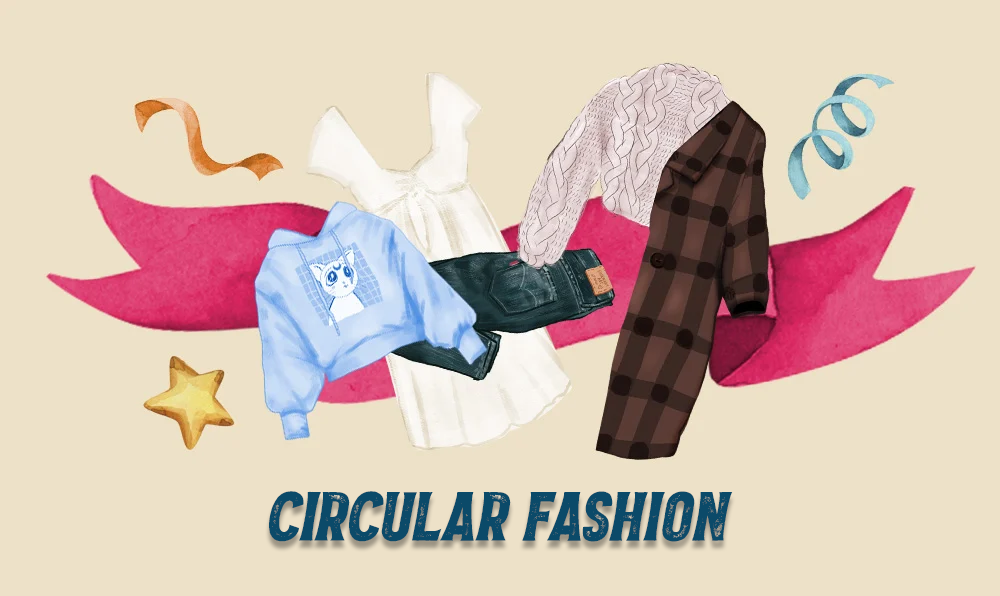
The global fashion industry generates 92 million tonnes of textile waste annually, discarding the equivalent of a truckload of fabric every second. Resources are dwindling, and production processes release hazardous pollutants into the environment. Enter Urban Circular Space (UCS), a quaint store on Ton That Tung Street in Hanoi. Behind its charming façade, powerful women founders daily propagate a strong message about responsible fashion.
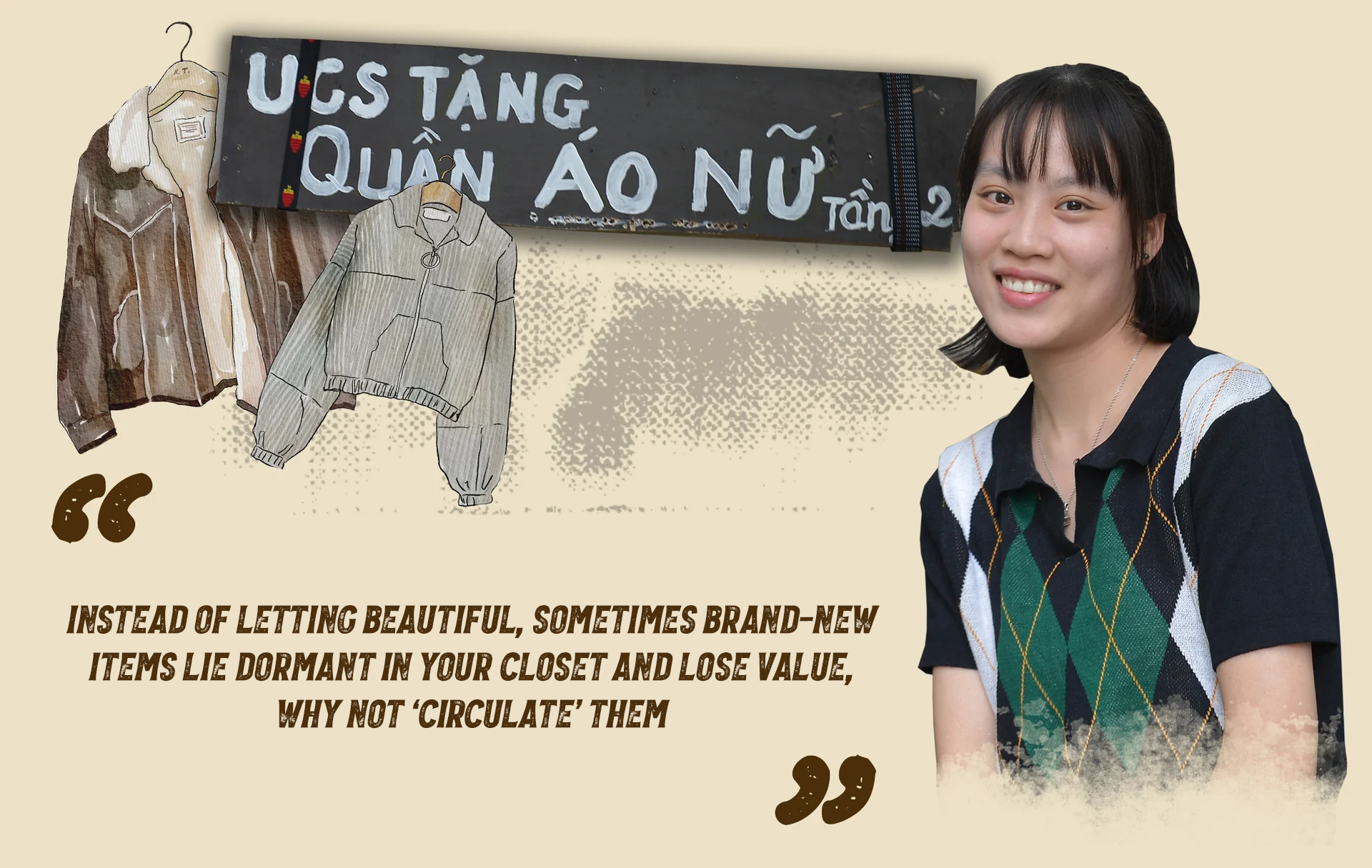
Though officially launched in January 2020, UCS’s founders had been active in fairs, cafés, and swap meets long before. The project’s initiator, Phung Thi Thu Ha, works for an international organization in Vietnam. Thuy Nga, born in 1996 in Hanoi, manages the project in place of the founder.
Nga elaborates on the initial ideas: "Fashion has a huge impact, especially on women. It’s essential for work, parties, and socializing, leading to significant fashion waste. We realized this unsustainable trend had to change, and we couldn’t continue relying on fast fashion."
Initially, members simply shared their own items. Recognizing the high demand for “circulating” used goods, UCS developed its “Circular Fashion” project to reduce fashion waste, raise awareness of sustainable fashion, and promote conscious consumption.
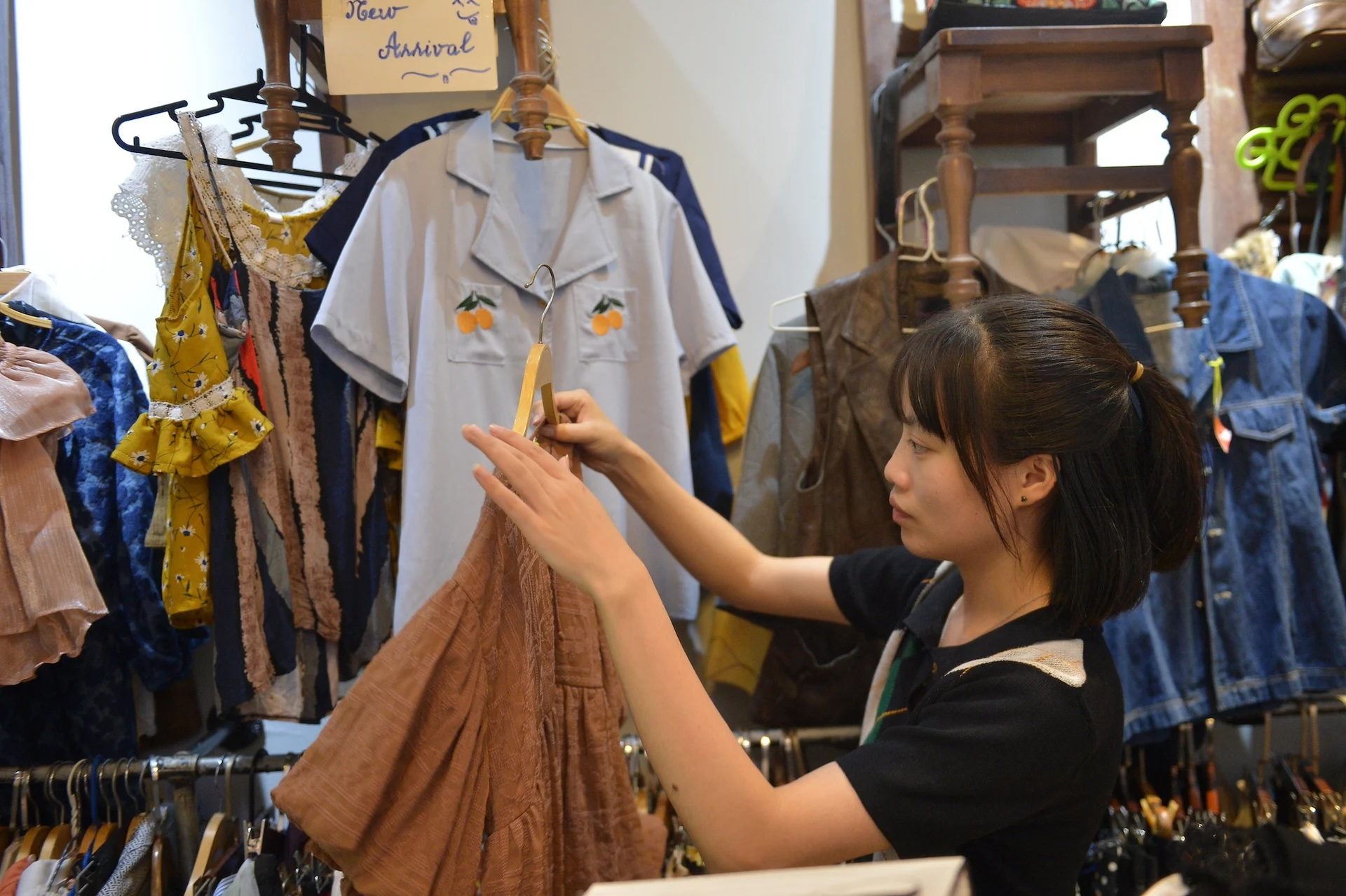
UCS operates on a model of donation, exchange, and fashion circulation. Anyone can bring unused clothes to the store to donate or swap for available items, extending their “lifespan” and getting them to those in need. The items UCS receives range from clothes and shoes to accessories. Even items already taken can be returned if no longer needed, provided they are clean and usable.
Clothes received by UCS, even those stained or damaged, are processed by members who then classify them based on functionality and intended use, either for donation or sale to different customer groups.
Items in good condition are sold at reasonable prices to generate operational funds. Older items are donated to individuals and organizations in need, not just in Hanoi but also in other provinces.
Unusable items are sent to units requiring fabric for other purposes, such as pet care organizations or recycling into new products like small bags and keychains.

UCS aims to "circulate" items as quickly as possible, ensuring that pre-owned goods reach new users promptly, avoiding prolonged storage in their shop.
On average, UCS circulates 20-40 items per day through sales and donations. In the first half of this year alone, nearly 300 products were "reborn," and about 5,000 items have been given "a second life."
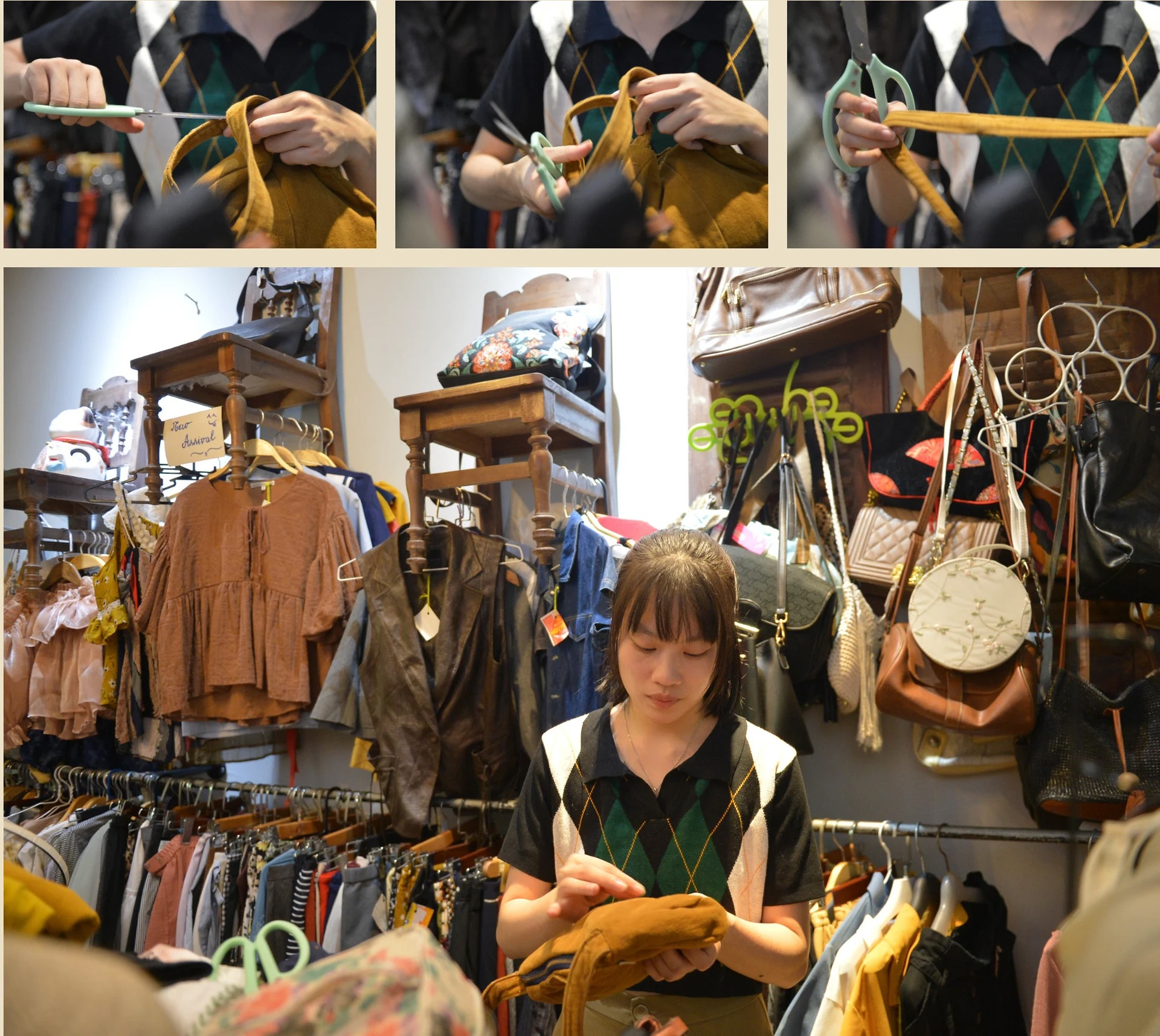
Thúy Nga, UCS project manager, notes that in nearly three years of operation, they have garnered support from numerous young people, as well as older adults. With nearly 10,000 followers on Facebook, UCS's fashion donation events and recycling discussions consistently attract significant attention.
Thúy Nga explains that this support motivates UCS members to overcome challenges: "Initially, we faced difficulties in sourcing and processing items due to limited awareness. Gradually, more people became interested in circular fashion."

Receiving gifts and support from not only students but also older individuals brings joy to the UCS team, who are thrilled to spread their message across different demographics.
Besides sourcing challenges, UCS also strives to find recipients for their donations, as charitable organizations do not always reach out. Additionally, UCS navigates financial difficulties inherent in their non-profit model.
During the recent summer volunteer campaign, UCS assisted the Youth Union of the National Economics University in delivering donated goods to impoverished areas in Sơn La, distributing 8-9 bags of items to new owners.
Visitors to UCS often return and bring new, loyal customers, satisfied with the product quality and UCS’s circular process, particularly resonating with the message of sustainable and green fashion, a concept still unfamiliar to many.
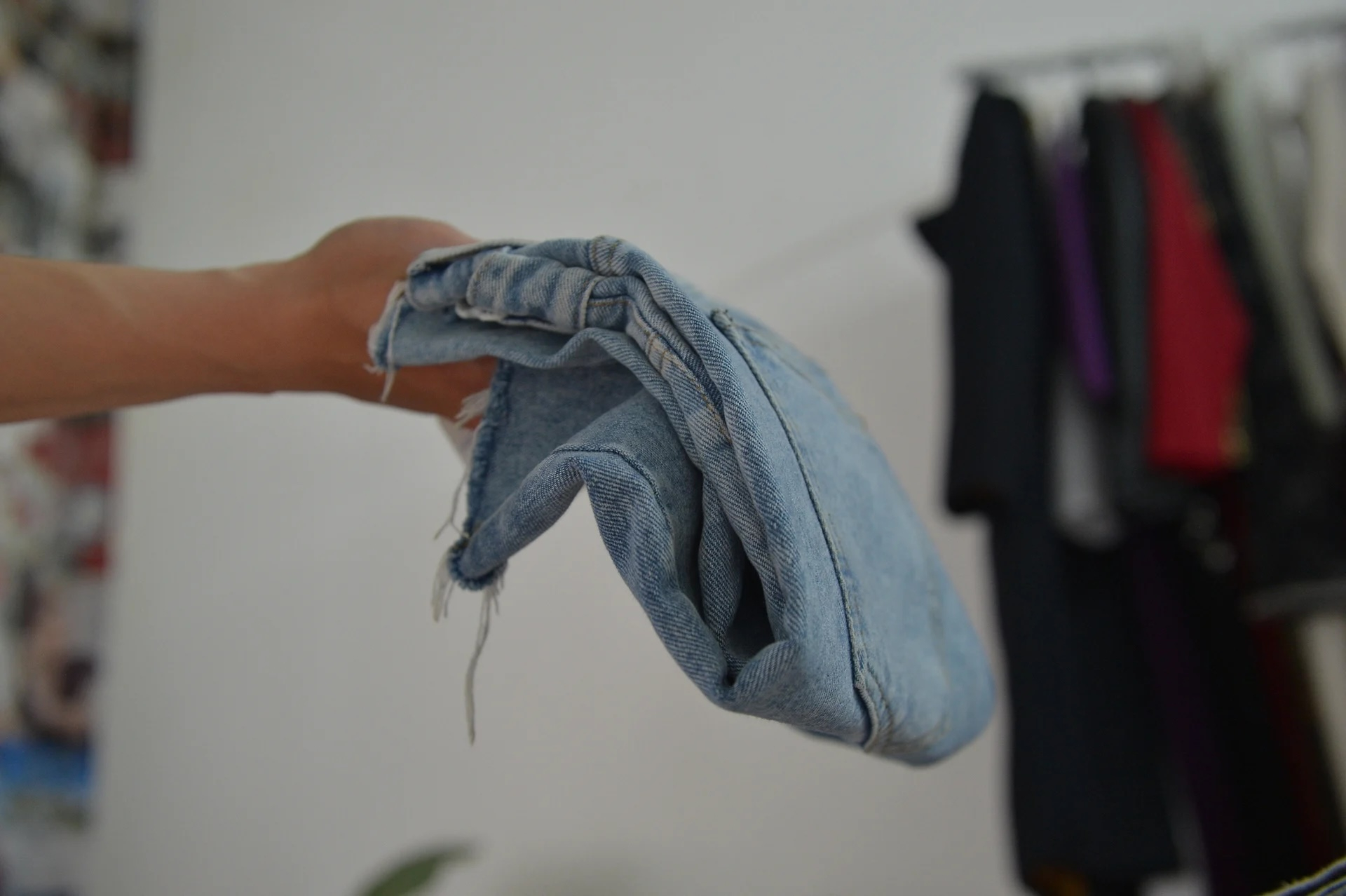
Trần Tuyết Nhung, a teacher from Hà Đông district, Hanoi, has recommended UCS to many colleagues, friends, and relatives: "UCS is not just about charity; it changes perspectives on fashion. People with my income can afford new items, but why not reuse to protect the environment? I hope my students and children adopt this mindset."
Since September 20th, UCS has expanded to Ho Chi Minh City, extending their sustainable fashion message more broadly across the community.
Phùng Thị Thu Hà, the project's founder, discusses UCS's future direction: "UCS functions like a convenience store. I hope we can expand further, establishing many small stores from the north to the south, and even abroad. More people are interested in this model and ready to open similar shops where they live."
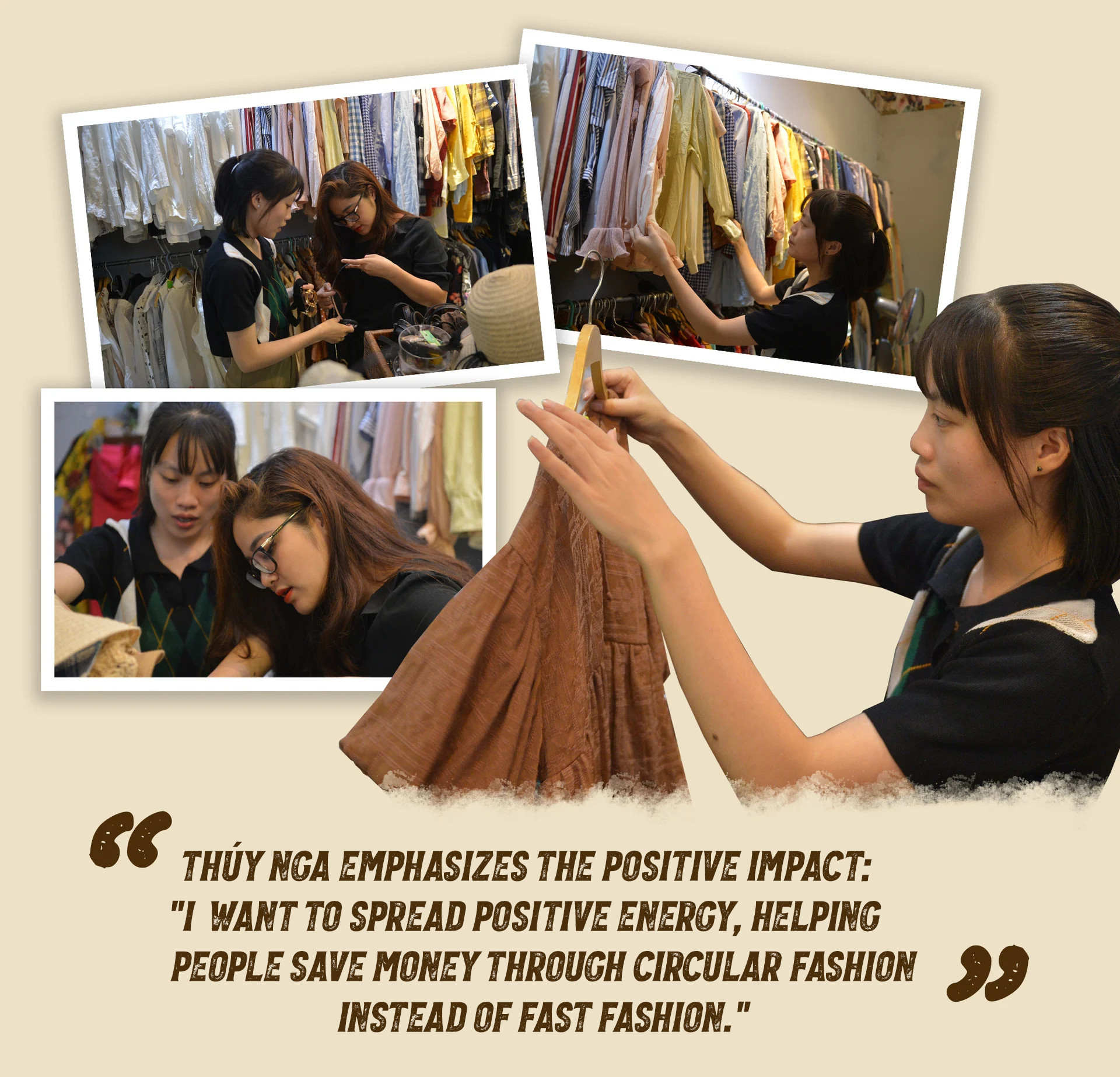
Rather than letting beautiful, even new items purchased in moments of "shopping frenzy" sit unused and depreciating in wardrobes, UCS advocates for their circulation.
This approach has significantly reduced waste, saving space for non-recyclable garbage. It serves as a bridge to connect people willing to donate fashion items with those in need, helping everyone save and protect the environment together.
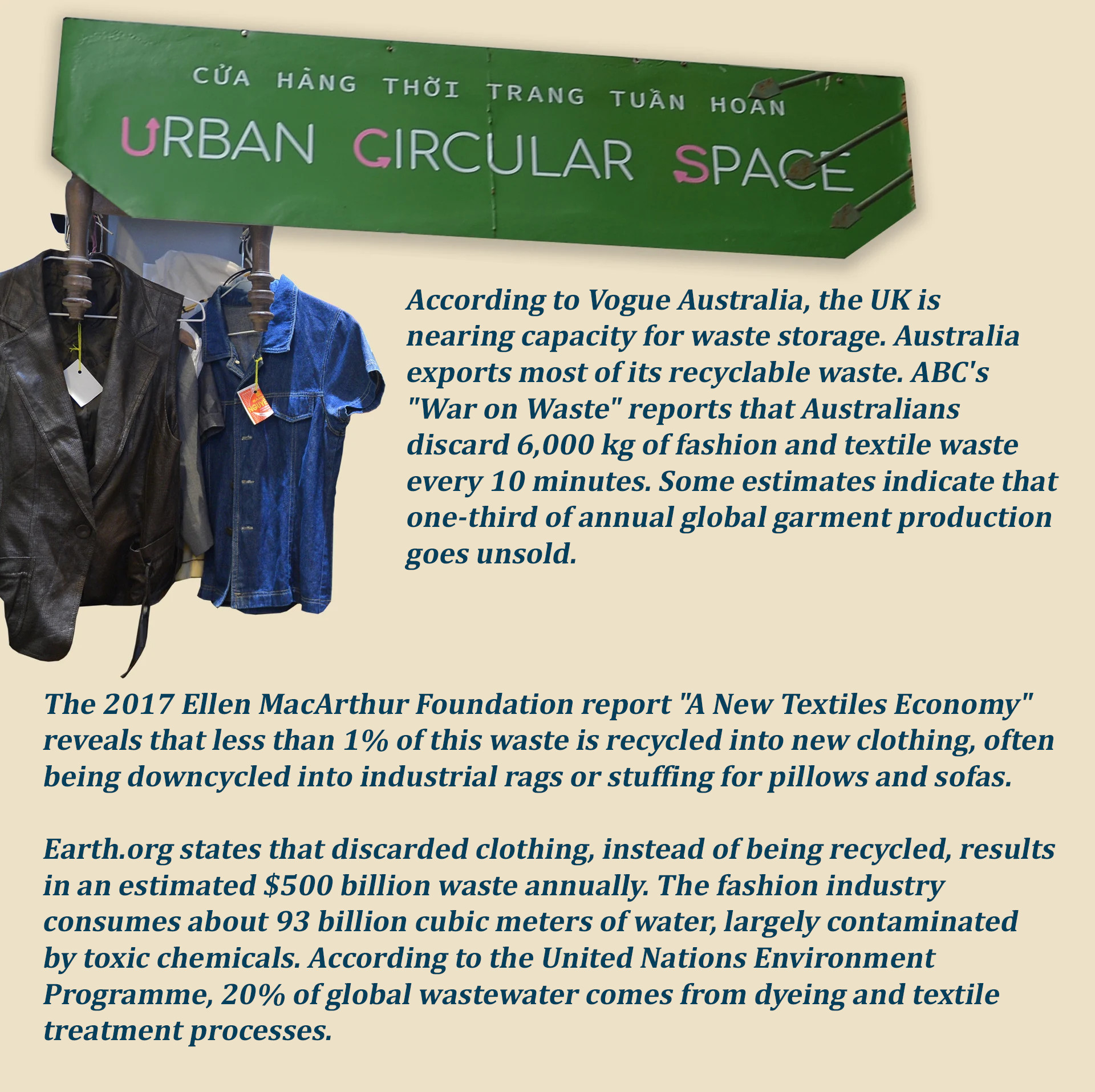
Contributors:
- Story: Đào Thị Hồng Lĩnh
- Editorial Assistants: Minh Hiếu
- English: Đinh Phạm Trân
- Photography: Đỗ Ngọc Tuấn
- Video: Hồng Lĩnh - Dũng Lê
- Design: Nguyễn Quang Huy
